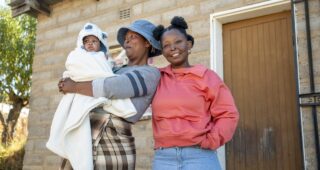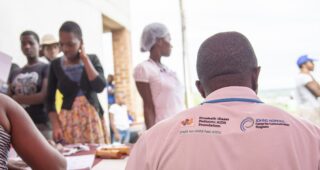A Mosotho Mother’s Relief: Saving Infant Lives Through Early Diagnosis and Care
You are here
Today, Lebele Mathato has brought her daughter, Nyakallo, for her 6-week check-up at the Maputsoe Clinic in Leribe, Lesotho. Nyakallo is alert and growing well. But as a woman living with HIV, Lebele has a lingering concern. Has she transmitted the incurable virus to her daughter during pregnancy or childbirth?
Lebele well remembers her anxiety of several years back when she brought her infant son, Tuma, to the clinic to determine his HIV status. When he was 6 weeks old, a health worker took blood samples from Tuma’s heel and applied them to a special card. Once the blood spots had dried, the card was shipped to a laboratory in Maseru for analysis to see if he had been infected with HIV. Lebele had to wait more than a month for the results.
In the end she was relieved to learn that Tuma was HIV-negative. But the long wait was hard for her—especially because like many Basotho women, she lives in a village far from the town center and must walk for several hours to get to the clinic. The longer an HIV-positive infant goes undiagnosed, the more likely they are to fall ill or die. Without treatment, 3 out of every 10 HIV-positive infants die before their first birthday, most within the first 3 months of life.
In contrast, today, Lebele will receive the results of her daughter’s test by the time that she leaves the clinic. In January 2017, through funding from Unitaid, the Elizabeth Glaser Pediatric AIDS Foundation (EGPAF) installed a point-of-care machine in the clinic for diagnosing the HIV status of young infants. Using innovative point-of-care technologies, test results are returned quicker as the sample does not need to travel to the central laboratory anymore; but is instead analyzed in the clinic. This allows HIV-positive infants to be diagnosed and initiated on life-saving antiretroviral treatment (ART) on the same day.
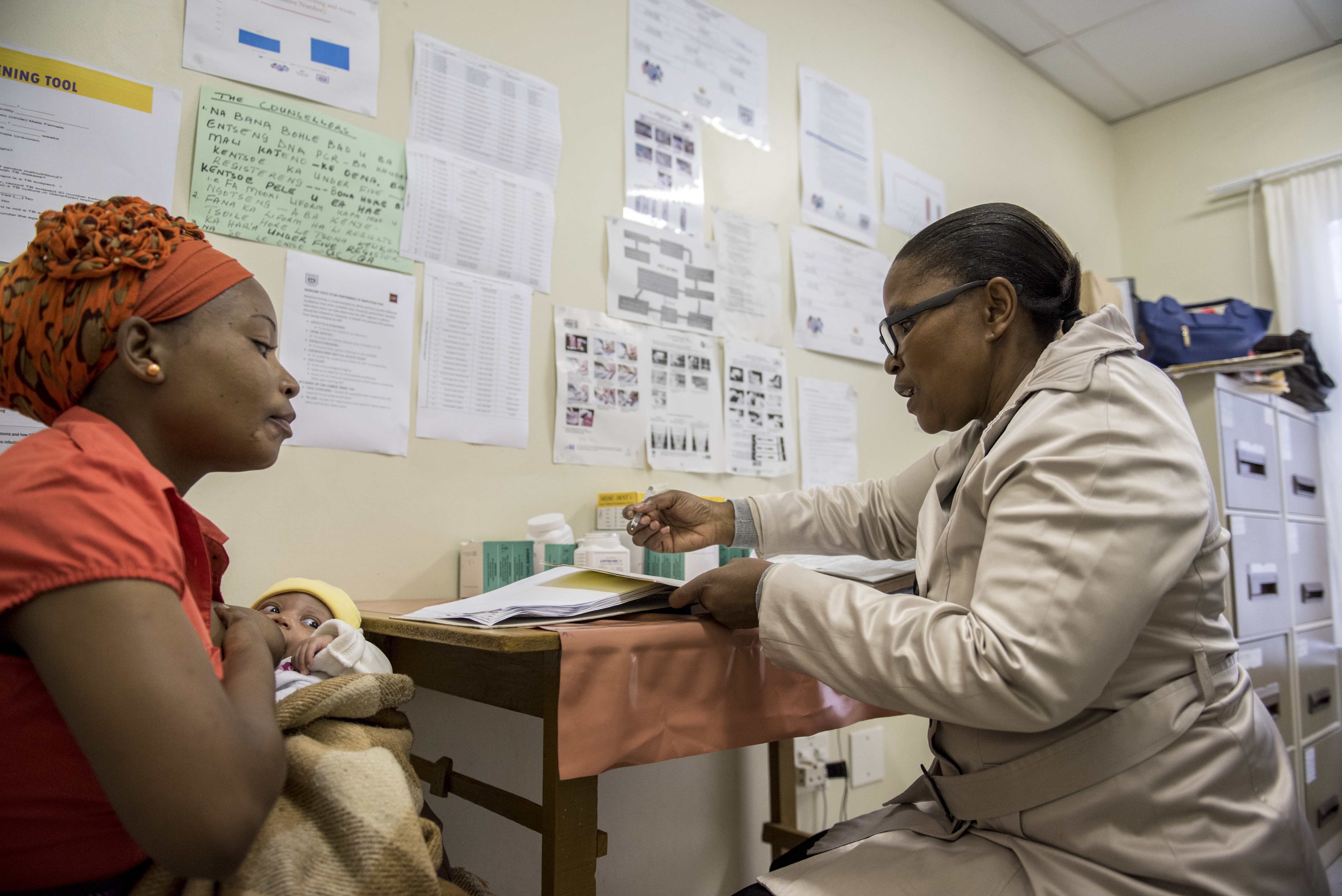
At the beginning of their clinic visit today, Lebele and Nyakallo met with Sefoli Mabafokeng, a lay counselor. Sefoli took a simple heel-prick blood sample from baby Nyakallo and sent the mother-baby pair to meet with other clinicians for a 6-week check-up and to get vaccinations. Meanwhile, the point-of-care machine quietly analyzed the sample in the HIV testing and counseling room. Fifty minutes later, Lebele and Nyakallo returned for the test result.
Sefoli immediately told the anxious mother that she could relax. Nyakallo is HIV-free.
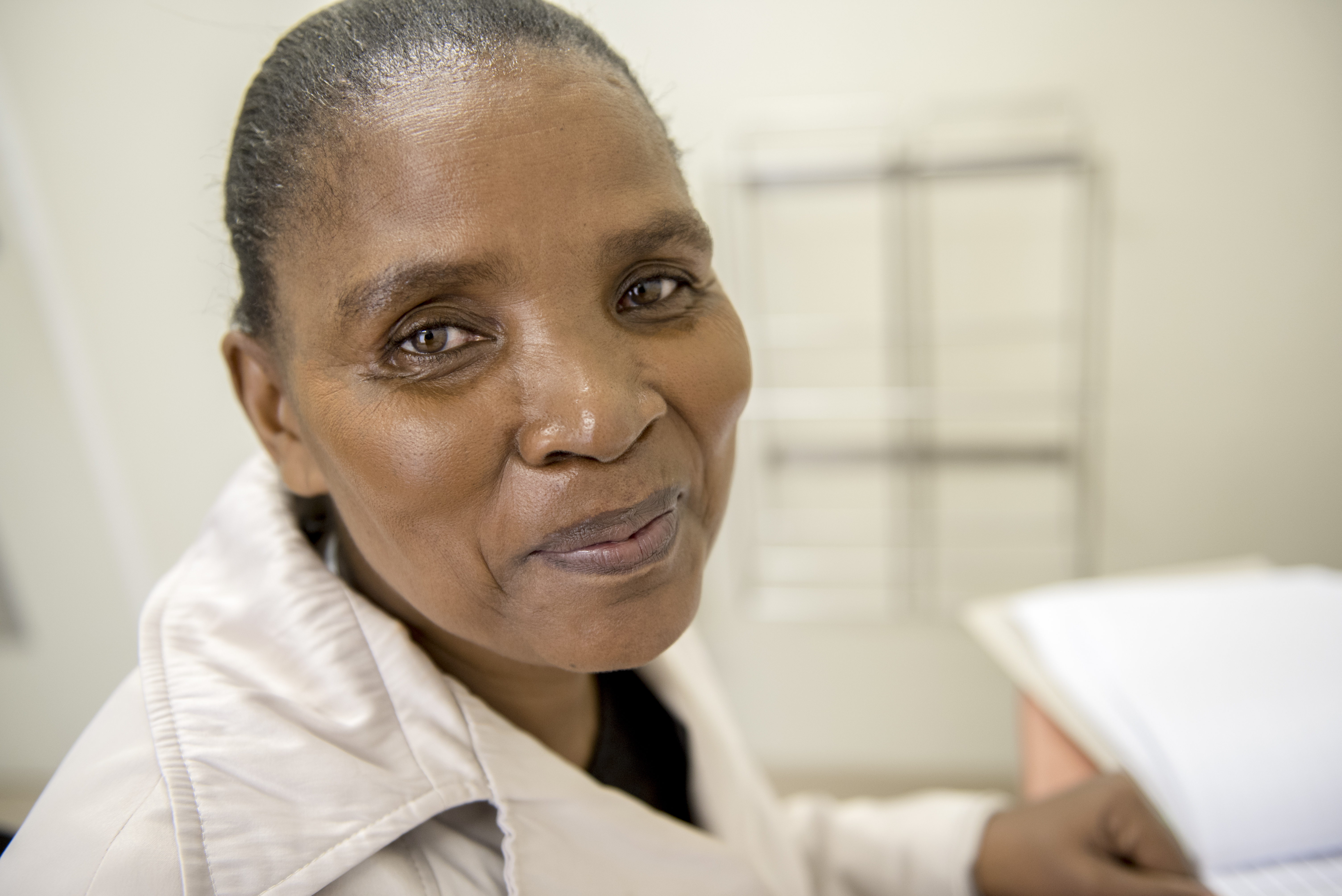
“I was worried, but now I am happy because she is not HIV-positive,” says Lebele, visibly relieved. “I just like a good life for her. I don't want my baby to be sick.”
“I was very happy to get the results so quickly. With my son I had to wait for a long time. Now I feel that I don’t need to worry.”
Lebele says that with both of her children, she has carefully followed the guidance of her health workers. She came to the clinic for antenatal care. She followed her prevention of mother-to-child HIV transmission (PMTCT) drug regimen. She administered Nevirapine, an antiretroviral drug, to her infant children. But she could not sleep well at night until she received the official word that they were HIV-negative.
“Even if they follow PMTCT protocols, mothers still worry about the HIV status of the baby, so to wait a long time for the mother to get the results is really hard for them,” says Sefoli. “The machine is doing a fantastic job. It fills the gaps in early infant diagnosis.”
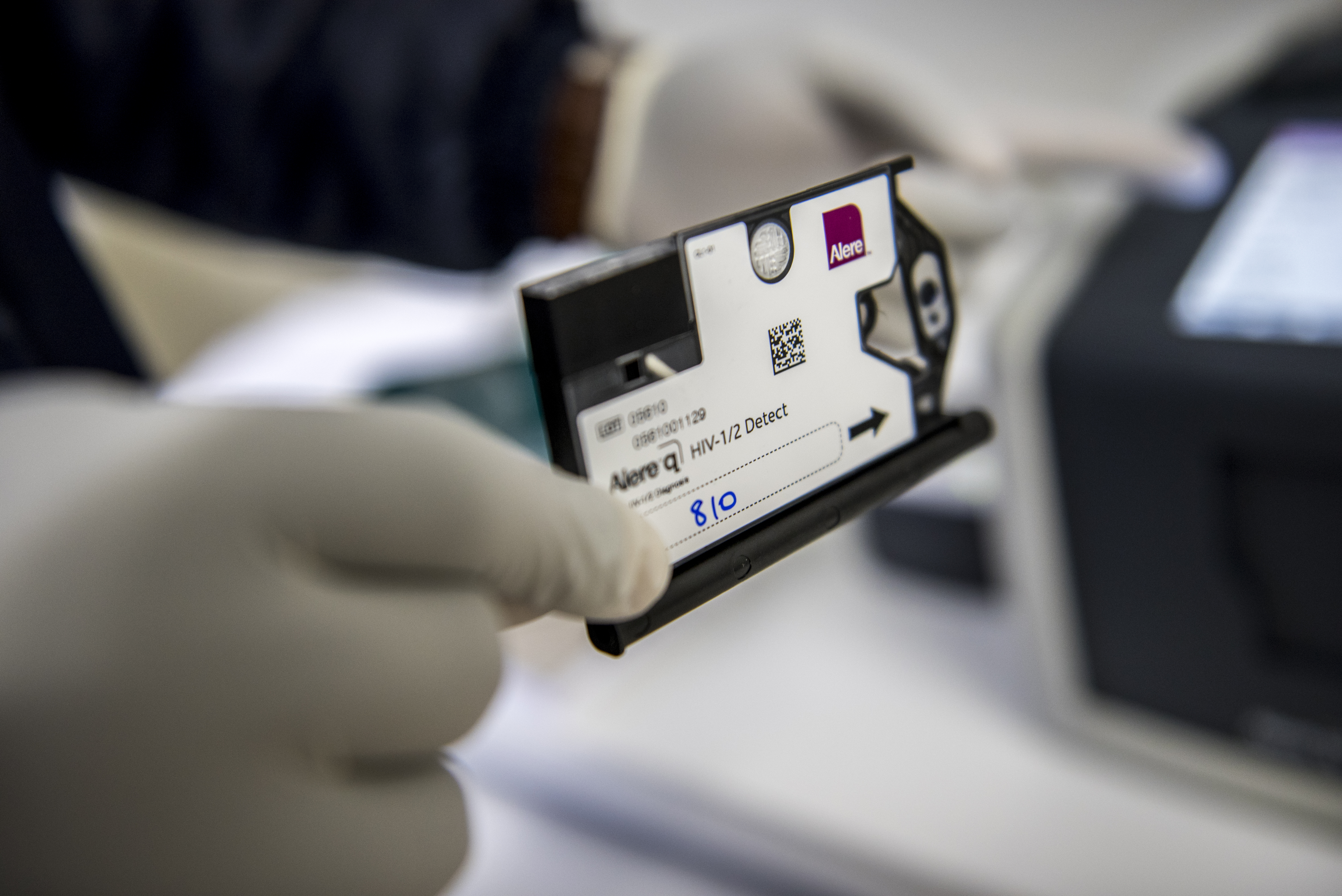
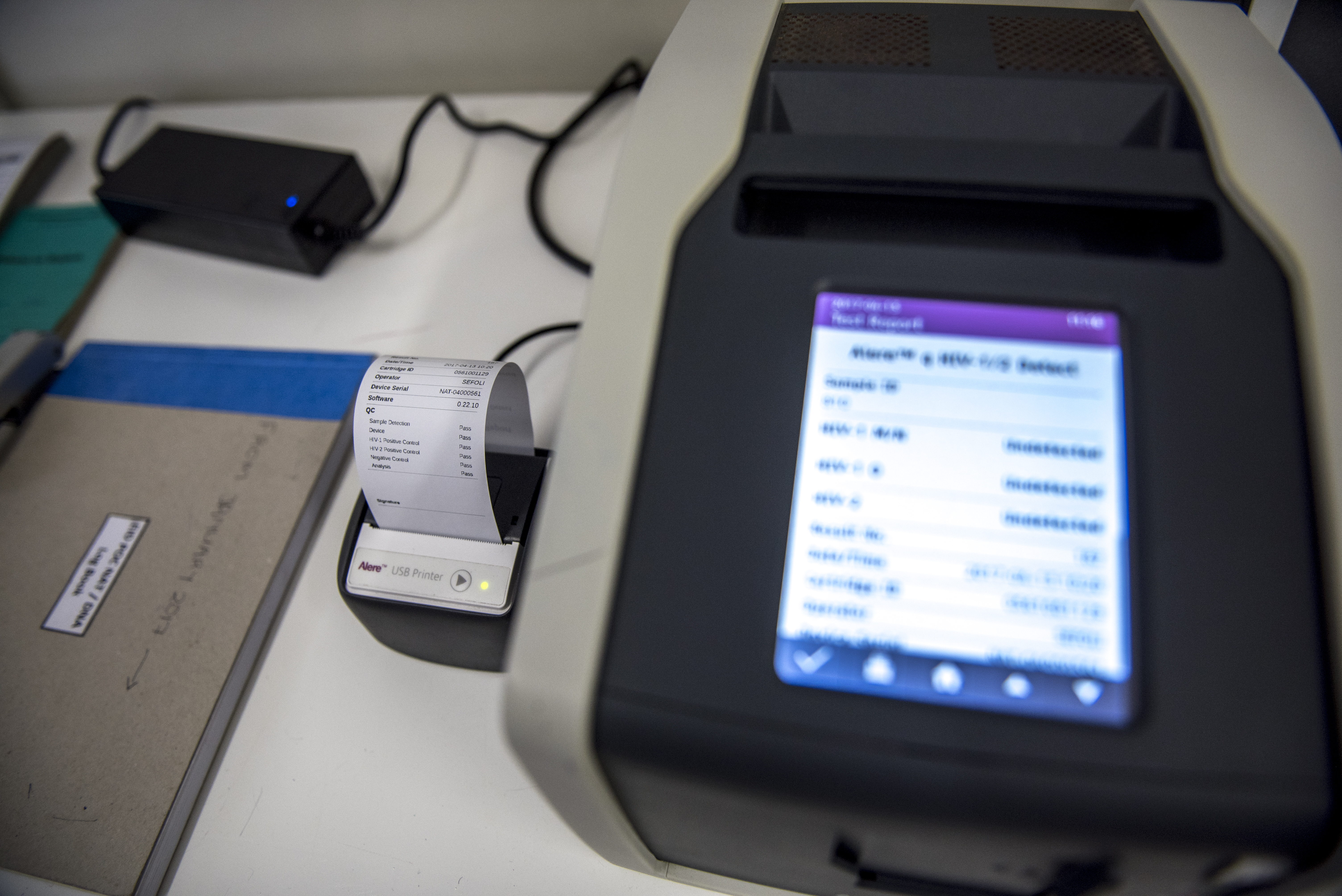
Sefoli counsels Lebele that they have not yet reached the finish line. Lebele will need to continue to follow PMTCT protocols while she breastfeeds. Nyakallo will be tested again at 14 weeks, 9 months and 18 months of age just to be sure.
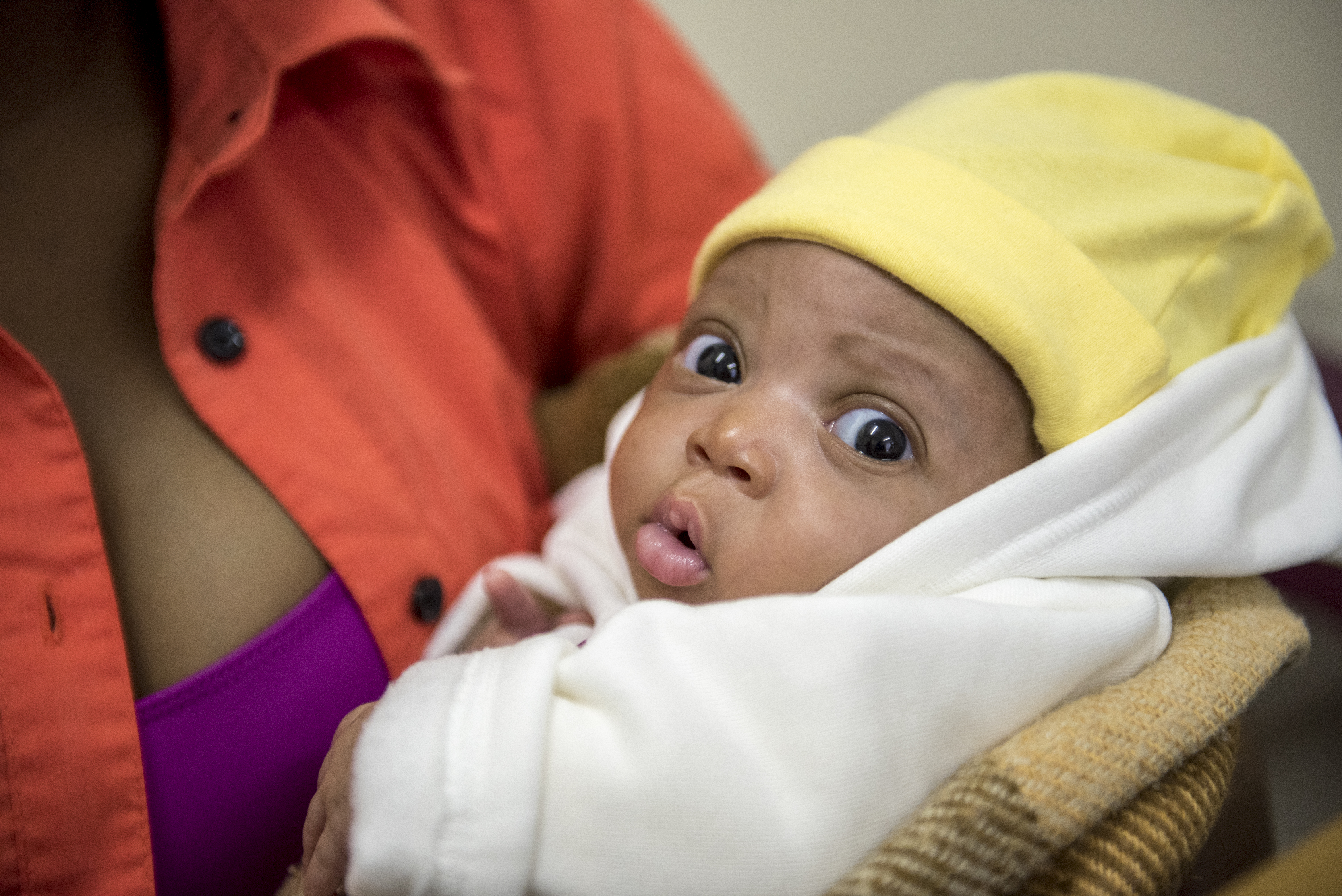
Still, Lebele walks out of Maputsoe Clinic with a lighter step. Her daughter is joining the ranks of the growing HIV-free generation in Lesotho.
In collaboration with Unitaid, and other stakeholders, the Elizabeth Glaser Pediatric AIDS Foundation (EGPAF) is expanding access to early diagnosis of HIV-exposed infants. EGPAF and Unitaid have strategically placed of point-of-care technology in nine of the countries where the HIV burden is highest: Cameroon, Côte d’Ivoire, Kenya, Lesotho, Mozambique, Rwanda, Swaziland, Zambia, and Zimbabwe.
Read more on the Unitaid Project.
Read more on how Lesotho is Catalyzing Expanded Access to Early Testing, Care and Treatment for HIV-Exposed Infants.
Team EGPAF
Lesotho
General

